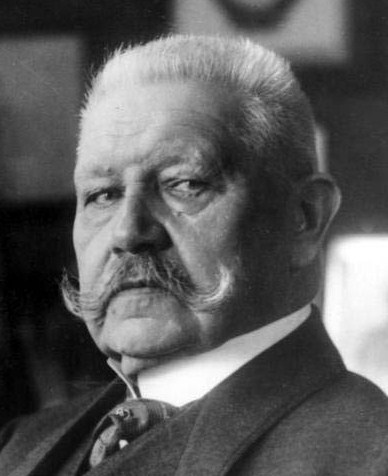Theobald von Bethmann Hollweg
Theobald von Bethmann was a German imperial chancellor. He was highly influential in leading Germany into World War One and his rejection of the German policy of unrestricted submarine warfare.
Bethmann Hollweg was born in 1856 in Hohenfinow, Brandenberg. He studied Law and joined the civil service. From 1905 to 1907 he served as Prussia's Minister of Interior and took over a similar role for the whole of Germany in 1907 - a post he held until July 1909 when he was appointed Chancellor of Germany.
Bethmann Hollweg was a loyal supporter of Wilhelm II and an experienced bureaucrat. However, he sometimes struggled for authority over the generals and admirals who became more prominent prior to 1914. Bethmann Hollweg pursued a policy of detente with Britain in the hope of ending the increasingly threatening arms race. However, this attempt at a diplomatic friendship was opposed by the head of the navy. When it became clear to Bethmann Hollweg that he was incapable of cooling the heightening tensions, he changed tact and supported a policy for a short and sharp localised war against any nation that opposed Germany and threatened her position within Europe.

As 1914 loomed ever nearer, it became obvious to Bethmann Hollweg that Europe was heading towards a major conflict, far larger than the localised war he had hoped for. He therefore changed his position again and tried his hardest to prevent a war that was to all intents unavoidable by the end of July 1914.
For the first two and a half years of the war Bethmann Hollweg held off the navy's call for unrestricted submarine warfare. He was concerned that it lead America to enter the war. However, in January 1917 as a result of Germany's worsening military position, unrestricted submarine warfare warfare was reintroduced - a policy that led to the sinking of the ‘Lusitania’. This angered America so much that she joined the war on the side of the Allies.
Bethmann Hollweg faced great criticism for this stance. In July 1917 he was forced out of office when both Luderndorff and Hindenburg threatened to resign if he did not leave. Against such a powerful pair, Bethmann Hollweg handed in his resignation. In his absence, Luderndorff and Hindenburg were in such a powerful position that they ruled as effective dictators.
His fall from grace has led to criticism from historians who argue that he was a weak politician. However, in the climate of the day, senior military figures in combatant nations reigned supreme. The fact that Ludernoff and Hindenburg had the authority to force Bethmann Hollweg into resigning illustrates that power the military had in Germany at the expense of politicians.
After a short retirement, Bethmann Hollweg died in 1921.
See also: November 11th 1918
MLA Citation/Reference
"Theobald von Bethmann Hollweg". HistoryLearning.com. 2026. Web.
